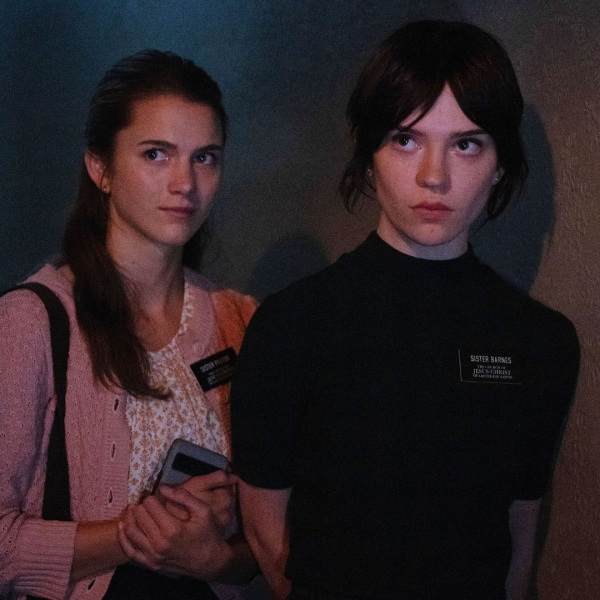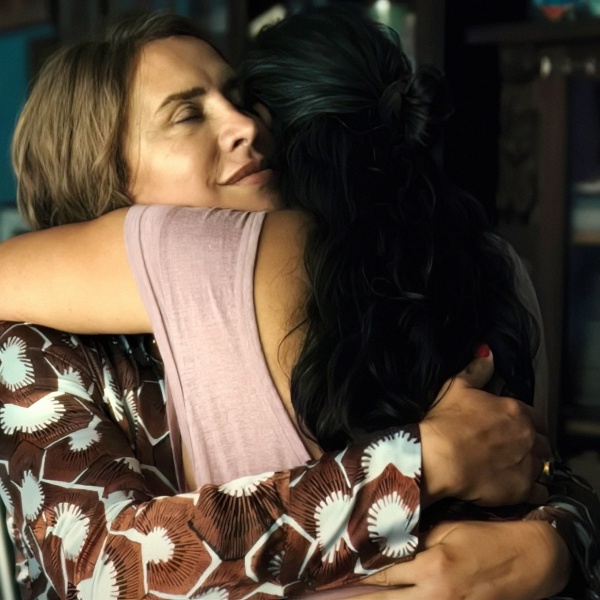Editor’s note: This review was originally published at the 2023 Cannes Film Festival. Disney releases the film in theaters on Friday, June 30.
It goes without saying that James Mangold is no Steven Spielberg, just as it would be wildly unfair to hold any Hollywood director to that standard. On the contrary, there’s something kind of admirable about the fact that Mangold found the chutzpah to close the book on the Bearded One’s signature franchise. What he didn’t find was a compelling reason to re-open that book in the first place.
Not only is “Indiana Jones and the Dial of Destiny” an almost complete waste of time, it’s also a belabored reminder that some relics are better left where and when they belong. If only any previous entries in this series had taken great pains to point that out.
Back to Mangold for a moment: It’s important to note that the failure of his latest movie has much less to do with his talents as a filmmaker than it does with the time at which he’s been asked to apply them. Mangold is as worthy an heir to Spielberg’s crown as anyone working at the studio level today, and the most electric setpieces in “The Dial of Destiny” — all of which are crammed into the opening 45 minutes — display the same charismatic flair and competence behind the camera that helped the vastly underrated likes of “Knight + Day” to punch so high above its weight class. No, the biggest (or at least most evident) difference between Spielberg and Mangold is that one of them would never have allowed himself to make anything this stale, and one of them probably wasn’t given any other choice.
Of course, that’s partially Spielberg’s fault. Or yours. Arriving at a major inflection point in movie fan economics, “Indiana Jones and the Kingdom of the Crystal Skull” immediately became synonymous with the sacrilegious treatment of beloved Hollywood franchises. That 2008 fiasco made its fair share of Mutt Williams-sized mistakes, but the reflexive outcry over “nuking the fridge” overshadowed a deliriously well-directed thrill ride that dared to reconcile the contradictory impulses that had defined Indiana Jones from the start: family and adventure.
In a clumsy preview of what “The Last Jedi” would do so masterfully a few years later, “Crystal Skull” had the courage to inflict meaningful change upon an iconic character, and the blowback was so intense that the most successful filmmaker in Hollywood history was too scared to ever pick up the fedora again. And why should he? That movie left its hero with the happiness that he’d never admitted he’d always wanted. “Indiana Jones and the Dial of Destiny” rips it away from him and gives him virtually nothing of value in return.
An empty slog of a movie that only exists to smooth over any of the stray fan complaints that have splintered the franchise’s audience over the last 15 years, “The Dial of Destiny” is a globe-trotting adventure movie so safe that even its 80-year-old hero never seems to be in any significant danger (a more accurate “Star Wars” comp would be “The Force Awakens,” but that legacy sequel had the luxury of promising something new, whereas this one just devotes itself to untying perfect knots into loose ends).

In hindsight, the worst part is that Mangold’s lengthy prologue dares to promise something more, as “The Dial of Destiny” starts with a de-aged Indy stealing a certain artifact from the Nazis at the tail end of World War II. The tech is still a little wonky here and there — appropriate for a franchise that privileges the finite powers of science over the vagaries of magic — but there’s no denying how much fun it is to watch a young Harrison Ford punch a brand-new array of Nazis, and even fight some of them on top of a speeding train alongside fellow archeologist Basil Shaw (Toby Jones). Mangold fills this entire sequence with delicious little gracenotes that help overcome some dark and dodgy CGI; a bit involving a very heavy bomb is worthy of any movie this franchise has ever produced.
The artifact in question is Archimedes’ Dial, a mathematical tool believed capable of opening fissures in time. Nazi scientist Jürger Voller — a too-obvious Mads Mikkelsen, playing a Wernher von Braun type who’s easily the most boring villain Indy has ever had to face — certainly believes in the device’s power, and when the story picks up in 1969, he’s still desperate to find the missing piece that might allow the jumpstart to fulfill its mysterious purpose. Indy, meanwhile, has no such motivation. His marriage to Marion Ravenwood in shambles and his son out of the picture (feel free to breathe a sigh of relief), Indy is trudging towards retirement as a professor at Hunter College, and the “get off my lawn” vibes have never been stronger. Nor has his relevance ever been in greater doubt; his students used to blink love notes at him with their eyelids, and now they sleep through class.

The good news is that there’s a perky, British-accented brunette in the back of the room who seems fully engaged with the material: Basil’s daughter, and Indy’s goddaughter, Helena Shaw (Phoebe Waller-Bridge, who brings a brilliantly rakish energy to the role, even if the script is never anywhere near as funny as she is). One minute they’re catching up over a few shots, and the next they’re speeding away from Voller’s coterie of forgettable henchmen (Boyd Holbrook, Shaunette Renée Wilson, some really really big guy whose name I don’t know) on a worldwide race for the ultimate McGuffin.
It’s a race that will take the cast from Tangier to Sicily (among much stranger places) as the lopsided script labors to cross off all the necessary obligations. There’s a fantastic chase between a motorcycle and a horse, a random kid who adds even less to the plot than usual now that Indy is a father figure twice over, and a whole lot of Nazis being punched in the face. And dropped out of airplanes. And smashed into train tunnels. Some things never change, but at least this film’s easy nostalgia has some meta-textual purpose behind it, as “The Dial of Destiny” is deeply keyed into a simple idea that explains both its plot and its pitfalls: You can’t change the past, but you might be able to revisit it for a while.
That means familiar beats and some fan-servicey cameos. It also means a paralyzing fear to make any choices that might retroactively change something about the franchise or challenge what its iconic hero means to people (it should go without saying that Ford is still Indy through and through, though the tearful speech he gave before the film’s Cannes premiere was far more emotive and moving than anything he’s asked to do in the film itself). Aside from a wild — and wildly inert — climax that might leave purists praying for the days of Irina Spalko and her disembodied alien heads, there’s nothing here that might surprise anyone. And that’s true in both macro and micro dimensions, to a degree that proves increasingly deadening every time Voller shows up at some location a few minutes after our heroes. “My god,” Indy gasps at one point. “We’re witnessing history.” But nobody involved in this movie ever dares to make any of their own.

At the end of the day, “The Dial of Destiny” isn’t about adding new layers to Indy’s legend so much as it’s about polishing off the ones it already had. Like the relic at the center of this movie — which the self-interested Helena is constantly trying to sell to the highest bidder — the real issue here is about restoring the full value of a cinematic icon before he rides off into the sunset for good. You can feel how desperately Mangold, Ford — and even executive producers Spielberg and George Lucas, the latter of whom would no doubt smile at the silliness of the film’s grand finale — desperately want Indy to go out on top in the public imagination, and “The Dial of Destiny” needlessly unearths ancient history in order to make that happen.
“Yesterday belongs to us,” someone says at one point, and when it comes to Indiana Jones, yesterday always will. The problem is that it already did, and today feels like a complete waste of time.
Grade: C
“Indiana Jones and the Dial of Destiny” premiered at the 2023 Cannes Film Festival. Disney will release it in theaters on Friday, June 30.






